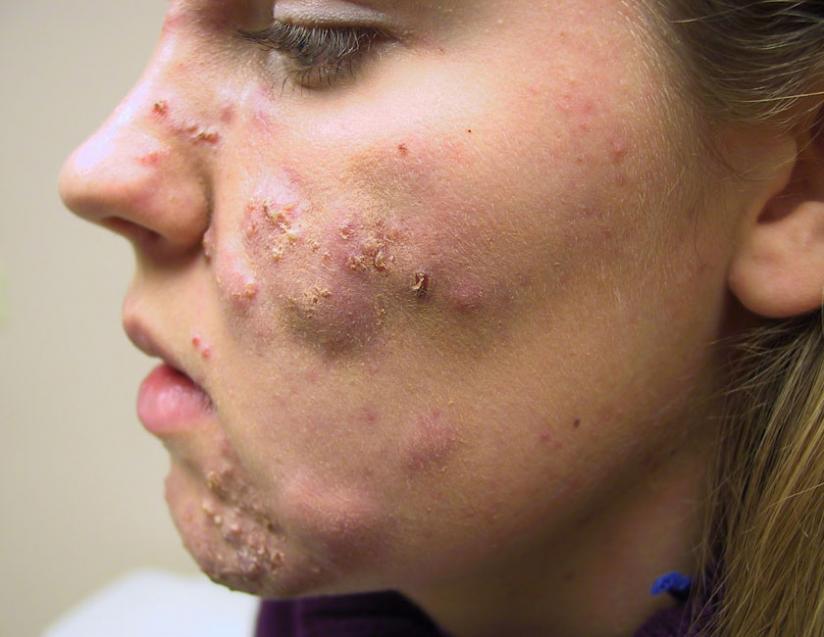Dear Doctor, I am 16 years old. I am struggling with a bad acne attack. I am afraid of the scars they leave behind. What can I do? Malaika


Dear Doctor,
I am 16 years old. I am struggling with a bad acne attack. I am afraid of the scars they leave behind. What can I do?
Malaika
Dear Malaika,
Acne are said to be part of growing up. They occur predominantly due to influence of male hormone, testosterone. They are most common during teenage years. Sensitivity to such hormones, plus oily skin, bacterial infection, hormonal changes as during menstruation, these multiple factors are responsible for causing acne. High fat or carbohydrate products in diet like chips, pasta, dairy products, among others, can cause and aggravate acne. It can also be due to oil based greasy make up. Mental stress can aggravate it. One can have acne due to diseases causing hormonal imbalance, as polycystic ovarian syndrome. A genetic susceptibility also exists.
Acne commonly occur over the face, chest, shoulders and back, that is, common sites for oil glands. Acne may manifest as white heads, blackheads, pustules and papules or small cysts. Due to mild underlying inflammation, there may be mild itching or pain. But one should never scratch it, as that carries risk of secondary bacterial infection. Removing acne mechanically can cause permanent scarring, hence should never be done.
Prevention lies in avoiding cosmetics and body care products containing much oil. Foods high in oil and sugar should also be avoided. Adequate relaxation is useful in reducing acne. Keeping the hands and hair clean helps in reducing acne. Face should be washed gently twice each day with lukewarm water and mild soap. They should never be squeezed or pricked. Mild acne can be treated by topical ointments containing resorcinol, salicyclic acid, sulphur, benxoyl peroxide. Local antibiotic ointments are also useful. Some women benefit from use of hormonal contraceptives.
Severe cases are treated by oral antibiotics. Interventions like derm abrasion are also used in severe cases.
Dr Rachna Pande is a specialist in internal medicine at Ruhengeri Hospital


